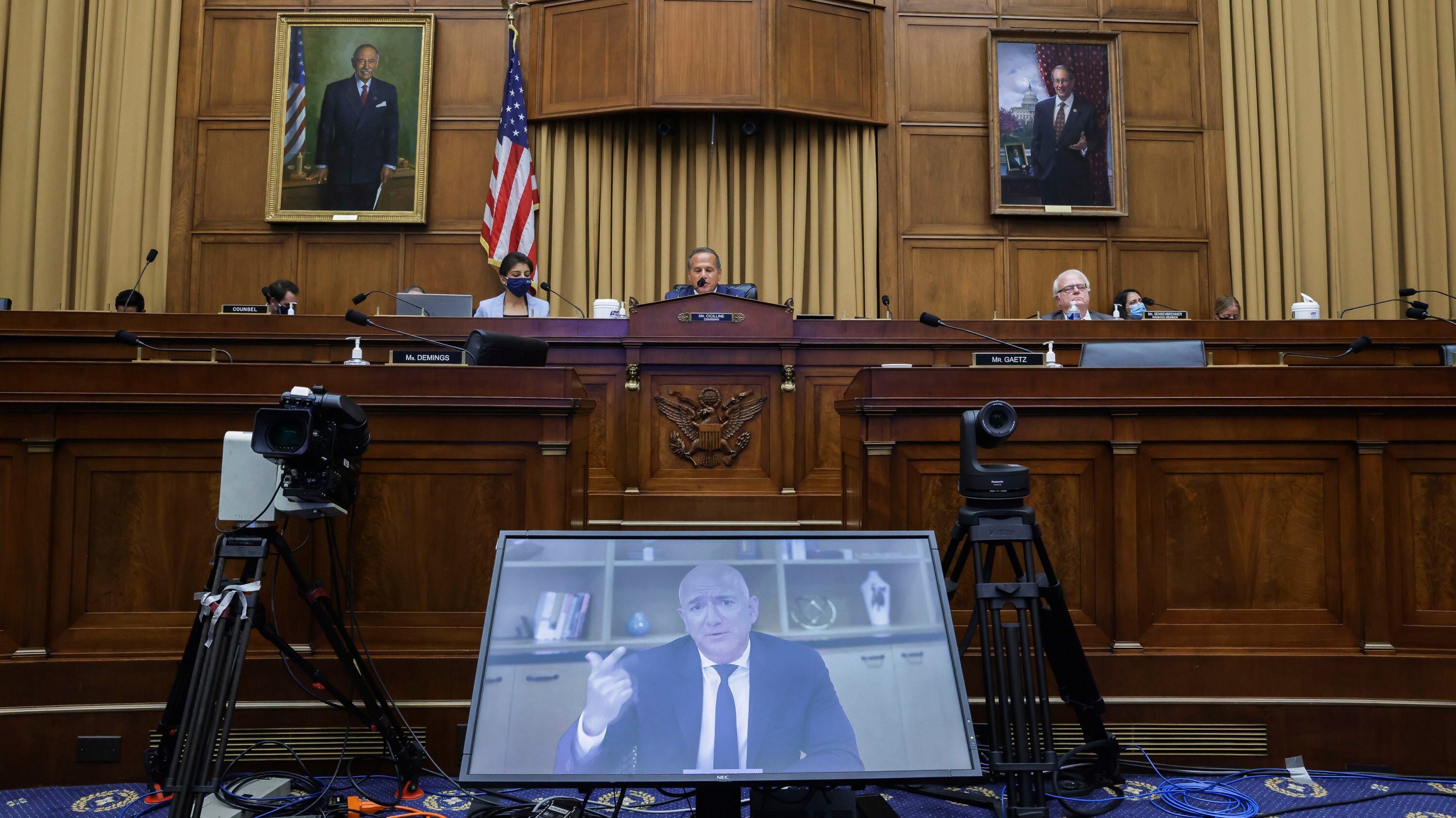From Wall Street to Silicon Valley, these are the top stories that moved markets and had investors, business leaders, and entrepreneurs talking this week on Cheddar.
AN ECONOMIC DISASTER
With the coronavirus running rampant across the country, the U.S. economy had its biggest collapse on record last quarter. GDP — the measure of all the goods and services produced in the country — dropped 9.5 percent or the equivalent of an annual drop of about 33 percent. That’s twice the rate of GDP decline during the Great Recession, and it happened in three months as opposed to three years. Nearly all of the recent economic data suggests that the recovery is stalling. Another 1.4 million people filed for jobless claims last week, the 19th week in a row with more than a million out-of-work Americans seeking benefits. Yet, the Senate broke for the weekend without coming to an agreement on a new economic rescue package, even as the enhanced unemployment benefits that have kept tens of millions of people afloat have now lapsed. Meanwhile, the Federal Reserve said it would keep interest rates near zero for as long as it takes the economy to recover. The central bank also extended its lending programs meant to keep credit flowing until the end of the year.
TECH CEOS GRILLED
The CEOs of Google, Facebook, Apple, and Amazon faced hours of aggressive questioning from both Republicans and Democrats as they defended the size, success, and reach of their companies. The back-and-forths were often sharp and revealing, but sometimes awkward, as some members of Congress asked questions meant for different companies, while others treated the forum as something akin to a public help-desk inquiry. House Democrats mostly criticized the CEOs for what they called anti-competitive business practices, while House Republicans focused more on what they said were efforts to stifle conservatives. Google’s Sundar Pichai took the most heat on issues of how Google uses data to muzzle competitors, and Facebook’s Mark Zuckerberg acknowledged that he viewed Instagram as a competitor when he snatched up the social network in 2012 for $1 billion.
BLOWOUT TECH EARNINGS
A day after those CEOs sat before Congress, all of their companies — by coincidence — reported earnings, and the results were eye-popping. Amazon, Apple, Facebook, and Google each easily topped expectations for the quarter, which was about as unusual as a fiscal quarter can get. Combined, the four companies made $28 billion in profits. Shares of Apple soared after the company said sales were up despite store closures and supply chain disruptions and announced a 4-for-1 stock split. Amazon hit it out of the park, reporting a staggering $89 billion in revenue even as the company spent $4 billion on various pandemic-related measures. Facebook saw revenue growth, too, though it was a deceleration from prior quarters.
The one big catch: for the first time, Google reported a decline in its revenue as many companies cut back on advertising.
RACE TO A VACCINE
The U.S. announced it will earmark as much as $2 billion for European pharmaceutical giants Sanofi and GlaxoSmithKline for the development and manufacturing of their coronavirus vaccine candidate. The deal is part of the White House’s Operation Warp Speed project that has now spent some $8 billion on various vaccine candidates, all of which are in either development or trials, and none of which are guaranteed to work. Meanwhile, Moderna has moved to Phase 3 trials of its vaccine, Johnson & Johnson is now in human trials with its candidate, and Pfizer has kicked off combined Phase II/III trials for its vaccine with many experts remaining cautiously optimistic that an approved vaccine will become available early next year.
THE WAY WE WATCH NOW
AMC Theaters, the world’s largest theater chain, and Comcast’s Universal Studios have struck a deal over one of the thorniest issues facing Hollywood: agreeing to collapse the theatrical window for new films from 90 days to 17 days. The entertainment industry had been debating making those windows shorter for years, given the popularity of VOD streaming, but the pandemic put those discussions into hyperdrive and left the theater chains with less leverage. Regal and Cinemark, the second- and third-largest chains, respectively, have yet to come to similar arrangements with any studios, though Regal’s parent company called the AMC-Universal deal the “wrong move at the wrong time” and said it would continue to only show films that respect the 90-day window.









